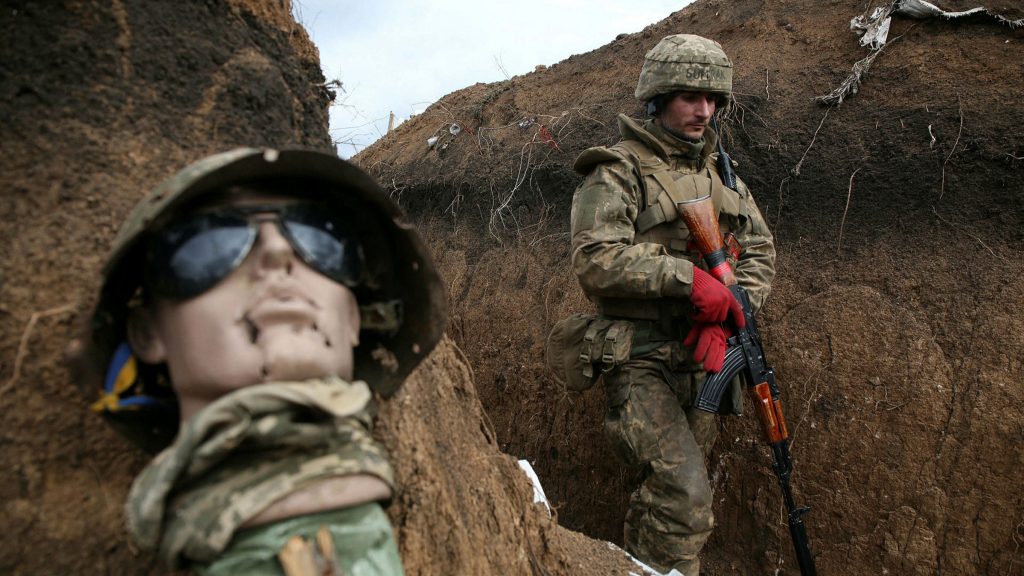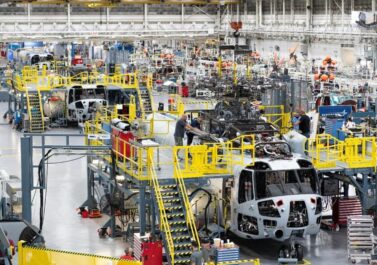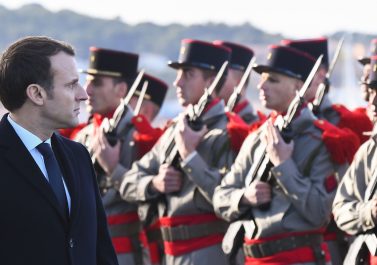
The discussion within AngryWorkers regarding the war in Ukraine is ongoing. We try not to become paralysed over these differences and continue some basic solidarity activities, e.g. fundraisers for refugees or anti-war initiatives in Russia. The following text was written by a comrade whose earlier contribution we published here.
The war in Ukraine is an extremely complex situation, taking place in a world which is changing very dramatically. In terms of barbarism this war is not that much different from the ongoing wars in Syria, Yemen or Tigray, but it is certainly qualitatively different. In Syria, Russia and the US, while supporting different sides in the war, politely phoned each other before air strikes to avoid hitting each others forces. The Ukraine war is both a symptom of these global changes and also a driver of accelerated human catastrophe in terms of food shortages and energy price rises. Sri Lanka has seen massive riots over cost of living and shortages. Even in ‘wealthy’ UK millions will struggle to maintain their way of life. The implications of the war on climate change are dramatic. In the week that the UN committee on climate change announced that none of the governments previous commitments had been met, various governments were announcing that because of the war they would have to ‘temporarily’ increase use of fossil fuels – as if the war is a temporary aberration when in fact it is the norm – the utter uncontrollability of capital. Parts of India and Pakistan are set to become uninhabitable due to heat.. The Mekong delta, a huge producer of the world’s rice supplies is vanishing and will cease to be viable by the end of the century. Vast population movements, dwarfing the present migrations, will become unstoppable with resulting wars for land and resources.
It is important to try to understand the Ukraine war in the totality of the world we are living in but by understanding the world I don’t mean doing the kind of descriptions of the life of money and its owners and political representatives that are so common in ‘left’ circles. I mean, above all, understanding the working class, trying to see where it is, how it is responding. Even when it is violently suppressed and atomised, as in China, it is this class that is making ‘money’ do the things it’s doing. People who see the world simply in terms of ‘imperialism’ or ‘finance’ have nothing to do with communism. It is capital’s necessity to control and subordinate labour that is the driver of everything. This rapidly and dramatically changing world cannot be understood by trying to cram it into old conceptions and formula. As the war goes on there is a danger that people become anaesthetised to it and return to business as usual whether your business is getting through the day or revolutionary politics. I think we need to examine the relations between our correct perspective of the centrality of the social revolution, the transformation of production relations, and the development of ideas and organisation in the working class. One of our comrades wrote about Ukrainians accepting the Russian invasion and then continuing the struggle inside the work places. This is too schematic. It is increasingly the case that what pushes millions of people into resistance to capital is not the realities of the work place but the growing degradations of the conditions for a human existence in general. How do the realities of war, hunger, racial injustice, sexual violence, climate change – all of which are accelerating at breath-taking speed and are foremost in many people’s lives and consciousness – how do these relate to the task of transforming the production of things. The war, the rapidly changing world challenges us to rethink old conceptions about how the class struggle will proceed. The brutalities, seen in the war, has been the daily reality for many people for their entire lives. Now it is becoming increasingly true for everyone on the planet. We are not going to have a repeat of any previous period of history.
Any effort to understand the war and see how militants should act has to take account of every scrap of evidence. Arguments based on selective narratives, invariably picking bits of information that fit a preconceived idea will lead nowhere. That’s why I was so disappointed and depressed by some of our comrades’ attitudes. I have spent years disentangling myself from the dogmatism, the preaching and the ‘join us’ activities of the ‘left’ and joined AngryWorkers because I felt there was something different, above all the idea of self-organisation of the class and working to find out where the class is and what it is thinking. Without any attempt to discuss, investigate or analyse the Ukrainian workers’ response to the war, some of our comrades knew that Ukrainian workers had no interest in an armed opposition to the Russian invasion and they have proceeded to select those reports that back their view. ‘No war but the class war’ might be a starting point but unless it is accompanied by an intimate knowledge of the particular war and the particular working class it is a meaningless soundbite. It leaves completely unanswered what is the class war in this or that concrete war. Two years ago one of our comrades said of the Bosnia war that the only thing for workers to do was get out. I don’t think he was right then, but now the same recipe is instantly applied again to Ukraine. Are all wars the same then? No need to investigate?
The war in Ukraine must be the most widely reported war of all times. In the press and social media you can find not only ‘news’ but also interviews, comments, and analysis from many of the combatants of both sides plus masses of analytical work by all kinds of people about the underlying causes of the war. Everyone in Angry Workers has access to this mass of information and yet within our small group, people draw totally different perspectives from this same data. This must mean we approach the question with very different ways of looking at the world. I’m not totally sure but I think the fundamental difference is over the role of the militant and their relationship to the class which goes to the heart of what we really mean when we say ‘it is the self organised working class itself that is the force for social revolution.’
This piece is not really going to try to analyse the war. There is so much stuff out there that already does that from all aspects and all of it from people far more knowledgable about the background to the war than I am. There is also, of course, an even greater quantity of stuff seeking to fit facts into preconceived schemas of all kinds. So for example the massive supply of NATO arms is cited to show that this is NATO’s war against Russia, ignoring the reality that in the first two weeks of the invasion NATO were very reluctant to get involved at all and it was the widespread popular anger at the invasion that first forced them to change track and then to look at how that popular mood could be harnessed to their own ends. And NATO is not some totally unified thing. Look at Boris Churchill – overjoyed at eclipsing ‘party-gate’ and even more importantly thumbing his nose at post Brexit Europe. Then again some backers of ‘people’s war’ choose to ignore the nature of the Ukrainian regime which a few weeks ago tried to pass laws weakening workers right etc etc. In these kind of reports the real complexities and contradictions of the war are ironed over to suit this or that bit of dogma. Why does ‘we don’t take sides’ become so one sided in its selection of details? Because it fits a schema that blinds us to anything that doesn’t fit. This method makes truly collaborative thought impossible.
The differences amongst AngryWorkers are repeated across the world in different political groups. We don’t have the openly pro-Russian views. (The much loved lefty Lula has made his own apology for Putin as have ‘anti-imperialists’ bourgeois governments across Africa and elsewhere ) Nor do we have the ‘its all NATO’s fault’, ie people who start out with their own bit of past dogma – ‘the enemy is at home’, ignoring the fact that the enemy is at home but he/she/it is also everywhere else too. But I can’t see perspectives inside AngryWorkers that are not found elsewhere – ie there is nothing different in AngryWorkers from many other groups / individuals so I will not write just about the debate inside AngryWorkers but in the ‘left’ in general from which I don’t now see we are any different.
The minute the Russians invaded a lot of people thought it was their political duty to tell Ukrainian workers how to respond, mostly drawing on their understanding of previous wars and previous writings, certainly not based on detailed knowledge of recent Russian / Ukrainian realities – that came later as people busily hunted down facts and figures to support whatever guidance they had chosen to give to Ukrainian workers.
This is the wrong way to proceed.
All over the world capital is making it impossible for people to live. People try to survive, try to be human. Two weeks ago a refugee boat, full of Syrians, sunk off the coast of Lebanon. On the radio I heard a relation of a missing family say why they got onto boats they knew were dangerous, ‘If we don’t get on we will die here.’ I would like to ask people to reread the piece I delivered at our first get together in London.
This piece is woefully inadequate and probably wrong in places, but I do think the main point it was trying to make is correct – the ‘left’, that rotten and demonstrably useless movement, thinks it knows the answers and that its job is to persuade the working class to follow its instructions, ie the preacher and the flock. It disregards what people are having to do to survive. I think our job is to try to understand how people, whose lives are being made intolerable by capital, try to fight back, try to preserve their humanity, try to organise themselves. But the dogmatists know the answer, know what Ukrainian workers must do and write articles to tell them. And the implication of many of these articles is that Ukrainian workers are fools because they don’t do what the ‘revolutionary’ thinks they should. Instead of fighting for the independent, self organisation of the working class, they go to war alongside the flag waving bourgeoisie, with arms supplied by NATO. Of course workers are quite capable of following truly reactionary paths. We don’t support people unquestioningly, but when Russia invaded Ukraine, workers there overwhelmingly tried to resist, many by taking up arms. They were not simply dupes of the Ukrainian bourgeoisie or NATO (who actually at that point didn’t want to get involved). This was their way of trying to stop life becoming even more intolerable than it already was.
The western ‘left’ is so blinded by dogma and so inexperienced at living under dictatorship that they actually can’t tell the difference between life in a bourgeois democracy and life under the rule of Putin. (Is there now a huge difference between Putin and Hitler in terms of forms of rule? What are the implications of a Russian – Chinese bloc? No, I’m not saying that this bloc’s imperialism is worse than the US’s but that the working class in the ‘west’ has not yet been suppressed in the same way)
So, when the invasion started, the first thing to do, very quickly, was to look and see if workers resisting the Russians were in any way acting in their own interests ? Now this assessment had to be taken in the context of the fact that there is really no influential, independent working class movement, not in Ukraine, not in Europe and certainly not in Russia. Ukrainian workers suffered 70 years of brutal anti-working class dictatorship then the shock switch to gangster capitalism. But they were not silent, not passive pawns in inter-imperialist games. The Maidan protests – yes a mixture of many things – contained a loud protest of workers claiming their own space in the country. But the reality is that the Russian invasion was not met by a coherent working class movement, not anywhere. (and it’s curious how the ‘left’ preachers somehow demand /expect Ukrainian workers to act as a coherent class when in the west they themselves are unable to play any significant part in organising a coherent working class movement to fight for its own rights, let alone acting against the invasion)
So what else could most Ukrainian workers do – faced with an invasion that they knew would lead to a brutal and savage occupation (see life in the occupied Donbas)? Yes, some chose to leave, many had already done so – and we should support them too, but most people both couldn’t and wouldn’t. Your old mum lives up the road, your wife is about to give birth, you’ve spent your life saving money to build your house or, quite simply, why the fuck should I go and become a fucking refugee for the rest of my life. So for most the only road was to resist. They weren’t trying to get their hands on other people’s lands, or trying to kill the ‘foreigner’ – just trying to live while capital (in the form of Russian militarism) was going to make life impossible. The job of the militant was not to dictate or preach but to try to understand how, given the actual conditions, the working class was ‘organising’ to stay alive.
And for the militant to try to find ways to organise support for that choice, to move heaven and hell to try and get the first glimmers of a working class response outside the country, both to strengthen self organisation here in the UK but through doing this, give some strength to the best working class forces in Ukraine. AngryWorkers fell at the first hurdle. When the invasion created a shock wave in popular outlook here, we couldn’t have a really collaborative, creative discussion about how to respond because we had no basic agreement – not just on the invasion but on what our role is. One of our comrades said putting out a clear ‘no war but the class war’ statement was important because it might be read by someone in Russia. This is what I call flag waving. You write things, do things, in order to win people to your position when what is needed is to try to propose ways in which the working class, or sections of it, can take a step forward in terms of self-organising to act in their own class interest. The ‘left’ sees winning a worker to the banner of revolution as being the goal. A real movement of the class, taking a step that may look far from revolutionary, is worth a thousand recruits to the revolutionary banner.
Many workers in Ukraine took up arms. Thousands of Ukrainians living in the west went back to fight, and, yes, some left, mostly women and children. But for those who stayed, because there is no significant workers’ movement, they saw no other way but to fight as part of the bourgeois army.
Let’s for one minute all agree – war is terrible. As Serge said, even when the gun really is in the hands and directed by workers, war deforms, degrades and brutalises. But capital’s ever growing destruction of the conditions for life forces workers to fight, sometimes in the class enemies interests but sometimes in their own interests and, at present, as they have not yet developed the organisation needed to transform the fight to stay alive into a fight to consciously change the world in which they live they often find themselves in cross class alliances. Marx warned that the Paris insurrection would be premature and a disaster for the Parisian masses but when they rose up he was their most fervent supporter and in their brief life lived as truly free human beings, Marx saw innumerable lessons for the future of humanity.
For me Ukrainian workers resistance to Russian invasion was in their own interest even though they have to fight within the army of the bourgeoisie and increasingly within strategies dictated by the US. This is something that has to be constantly thought about. Is there a point at which that defence of workers’ own interests is completely wiped out by the interests of Ukraine / US capital? But in a way that’s something that should be spurring on the practical activities of militants, not just something to speculate about as curious observers. How to strengthen the working class voice both in Ukraine and world wide in opposition to the Russian invasion? How to take advantage of the class divisions within the resistance to the invasion – ie how to accentuate the workers’ antagonisms to the Ukrainian government’s attempts to use them as fighters while stifling their rights as workers.
So this is the difference. How is the world changing? Do we know in advance how workers must organise or do we have to study each new moment in the life of the class to see how workers themselves are thinking, how and why they are choosing to act, how are they organising and then to try to strengthen that, both politically and organisationally?



